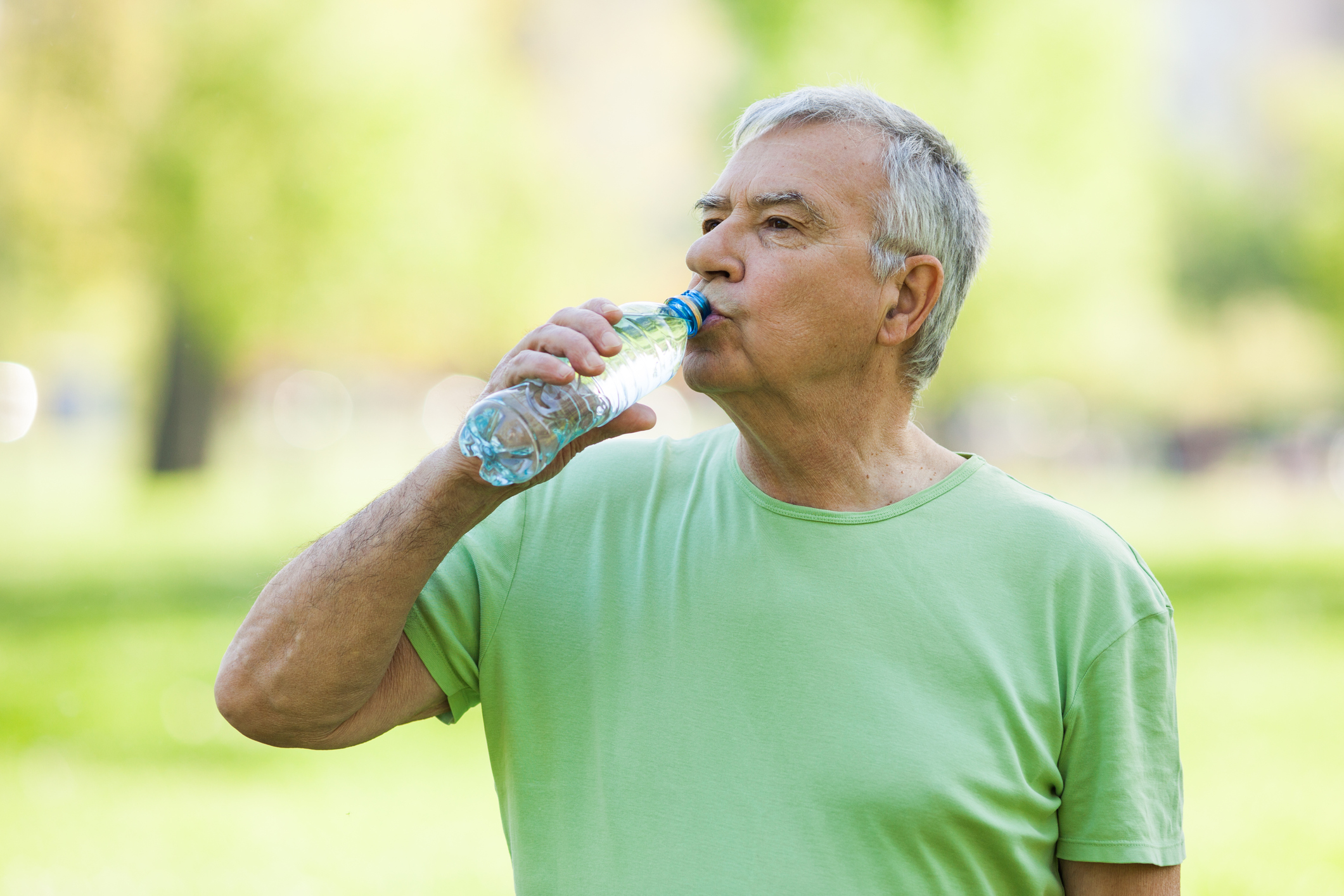The hot, dry days of late summer are heavy upon us and it’s easy for older adults to become dehydrated which can cause dizziness, muscle cramps, nausea and heart palpitations. But chronic dehydration can also contribute to heart attacks and the formation of plaque in blood vessels.
Drinking less than 2 glasses of water a day on a regular basis can cause the blood to thicken and clot more easily. The blood vessels also constrict and form plaques more easily, all of which can lead to heart disease. A 2005 Japanese study found that people who drank five or more glasses of water each day, compared with those who drank only two, were less likely to develop heart disease. And study participants who were mildly dehydrated experienced angina more frequently than those who drank plenty of water.
According to the American Heart Association, keeping the body properly hydrated also helps the heart pump blood more easily, lessening strain on the heart and keeping muscles working efficiently. By the time you feel thirsty, you are already dehydrated; it’s better to watch the color of your urine to determine if you need to drink more water. Pale, clear urine means you are well hydrated but dark urine indicates you need to drink more water. And of course during hot weather or while exercising, it important to replace the water you sweat off.
How much water is enough? Experts recommend drinking a quart of water a day if you weigh less than 150 pounds, 1.5 quarts if you are between 150 and 200 pounds and two quarts for people over 200 pounds.
To learn more about the symptoms and causes of dehydration, visit the Mayo Clinic website by following this link.






Add Your Voice
0 Comments
Join the Discussion